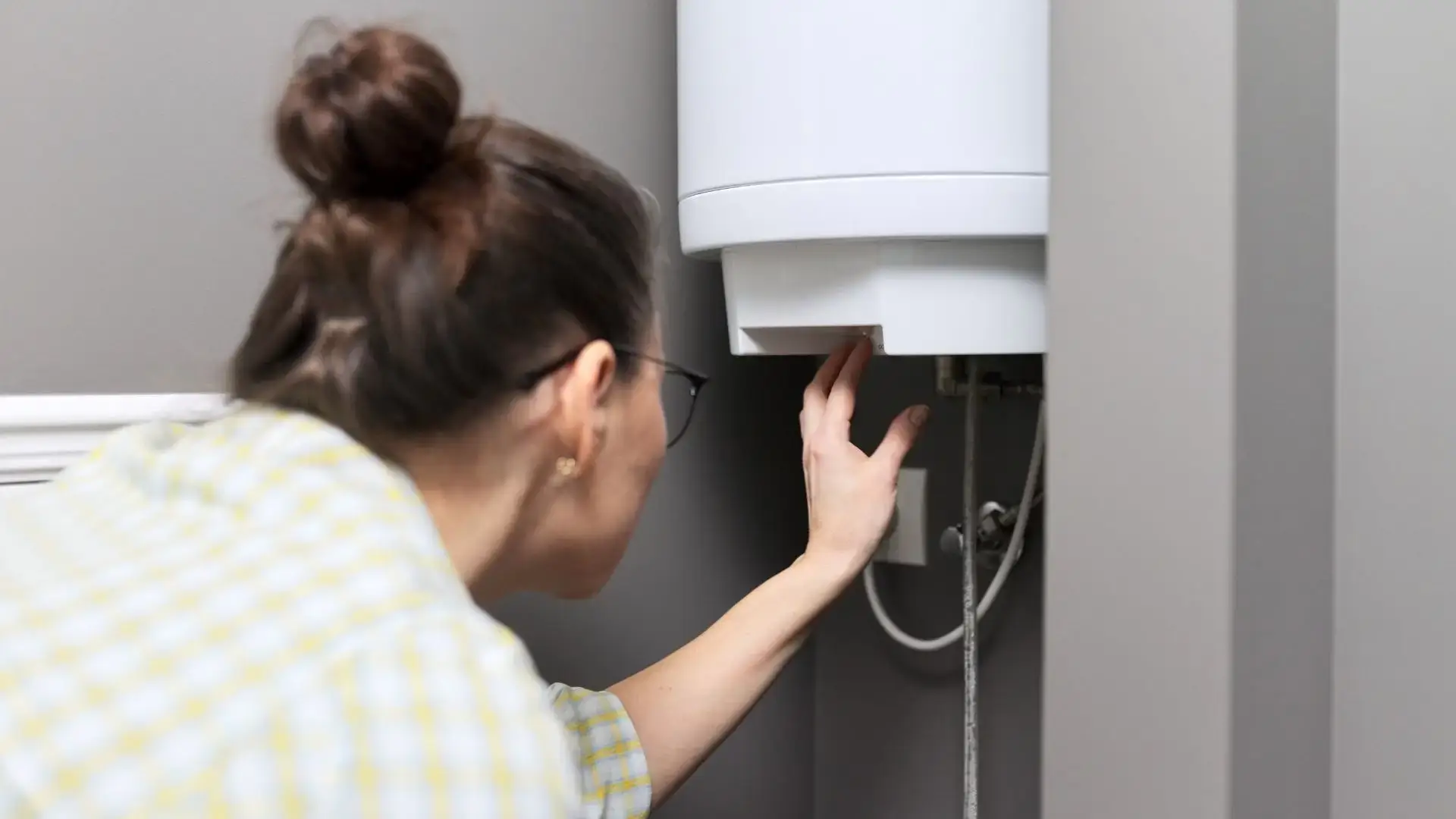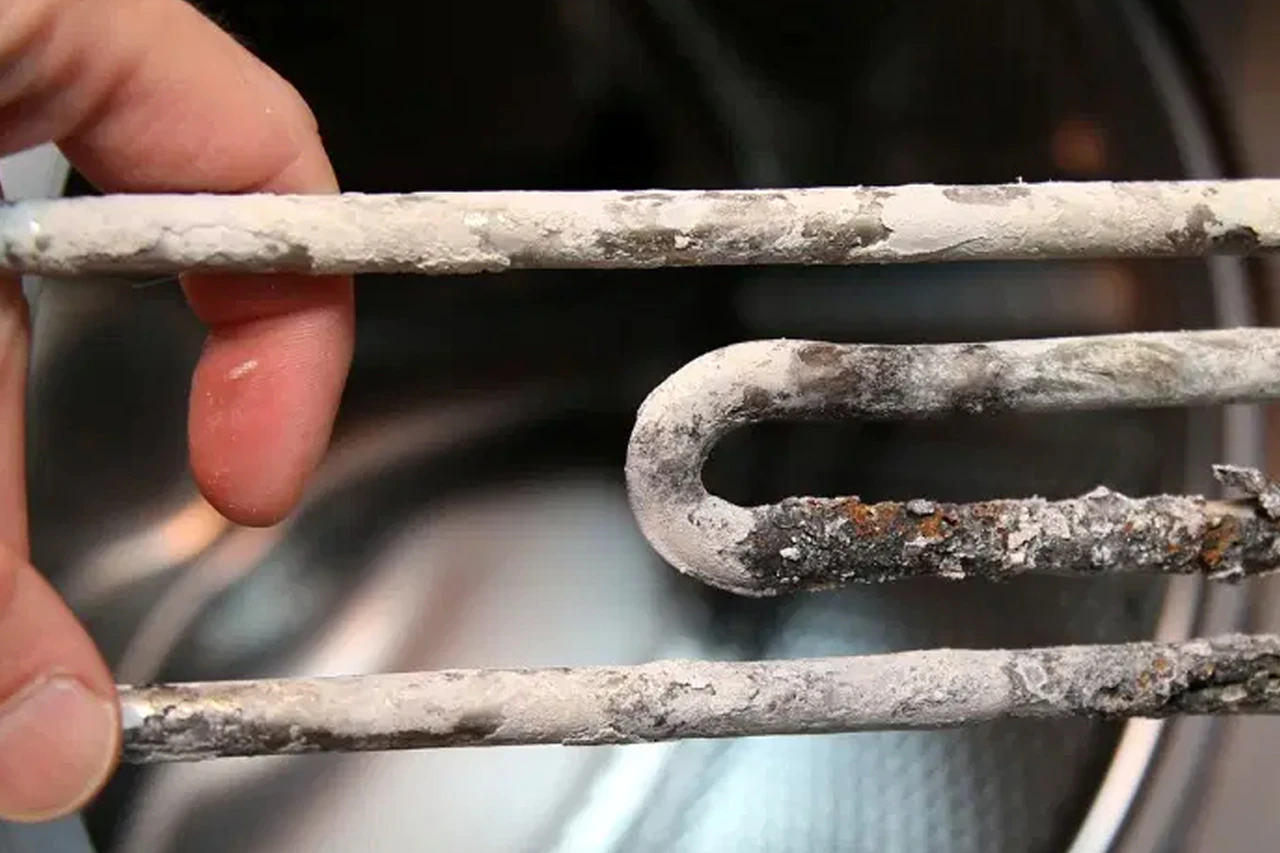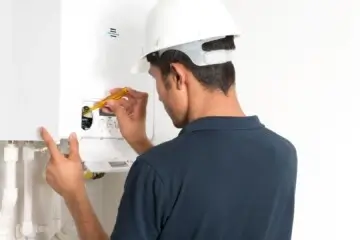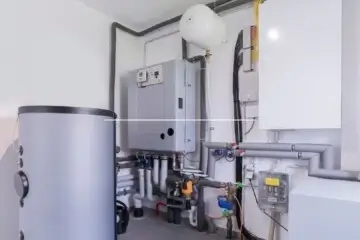To effectively prevent limescale buildup in boilers, it is recommended to use water softeners. Regular maintenance is crucial to improve efficiency and prolong the system’s lifespan. Limescale is a common issue in areas with hard water, which can reduce the efficiency of the heating system. Water softeners help to reduce limescale buildup and enhance overall performance. Our local plumbing company in Mississauga provides professional services for installing water softeners and addressing the impacts of limescale on boilers. Mineral deposits from hard water can lead to limescale accumulation in boilers, affecting heat transfer and potentially causing corrosion issues. Remember, taking proactive measures through water treatment and regular maintenance is essential for optimal boiler performance and longevity. For more information on maintaining boiler efficiency, it is advisable to consult with CAN Plumbing and Drainage in Mississauga experts.
Contact CAN Plumbing and Drainage for all your Boiler Needs
When addressing your boiler needs, reach out to CAN Plumbing and Drainage in Mississauga for expert assistance. A common issue with boilers is limescale buildup, especially in hard water areas. Limescale can reduce the efficiency of your heating system, leading to higher energy bills. To prevent limescale from affecting your boiler’s performance, consider installing a water softener. Water softeners work by eliminating the minerals that cause limescale, thereby prolonging the lifespan of your boiler and improving energy efficiency. CAN Plumbing and Drainage in Mississauga offers services related to water softeners and can help you choose the right one for your specific needs. Don’t let limescale impact your boiler’s efficiency – contact us today for professional advice and solutions.

CAN Plumbing and Drainage Services Related to Boilers
At CAN Plumbing and Drainage Services in Mississauga, we specialize in new boiler installations, replacements, and repairs. Our team is skilled in ensuring that your boiler operates efficiently and reliably. Whether you need a new system, a replacement, or repairs, our experts are here to deliver professional and dependable service.
New Boilers Installation
To ensure the optimal performance and durability of your new boiler, it is vital to engage professional plumbing and drainage services that specialize in boiler installations. In regions with hard water, the accumulation of limescale can pose a significant problem that affects the efficiency of your boiler. Incorporating a water conditioner during the boiler installation process can help prevent limescale buildup, thus ensuring peak performance and safeguarding the system from potential damage. Proactively addressing limescale prevention from the outset can help you avoid expensive repairs and minimize the impact on your energy bills. Trusting skilled experts in boiler installation to integrate limescale protection measures can ultimately save you both time and money in the long term.

New Boilers Replacement
For the efficient and effective replacement of new boilers, it is advisable to engage plumbing and drainage services that specialize in boiler systems. When upgrading old boilers with new ones, it is crucial to address potential issues such as limescale build-up to ensure the efficiency and longevity of the new system. Limescale deposits in boilers can result in reduced efficiency, increased energy consumption, and possible damage to the system. By proactively preventing limescale in boilers during the replacement process, such as by installing water softeners or descaling systems, you can minimize limescale formation and lessen the impact of existing limescale on the new equipment. Professional plumbing and drainage services can offer expertise in managing limescale and optimizing the performance of your new boilers.
Boilers Repair
CAN Plumbing and drainage services in Mississauga play a crucial role in addressing boiler repair needs caused by limescale build-up. Limescale accumulation in boilers can result in decreased efficiency and potential damage. Plumbing professionals can help by employing methods to eliminate limescale and prevent its formation. Techniques such as descaling the boiler to reduce build-up of limescale or installing a water softener to minimize limescale formation can be highly effective. Regular maintenance by skilled technicians is vital to ensure the longevity and optimal performance of your boiler. By enlisting the expertise of plumbing and drainage services specializing in boiler care, you can promptly and efficiently tackle limescale issues, ultimately extending the lifespan of your boiler and preserving its efficiency.
Importance of Preventing Limescale
Understanding the harmful effects of limescale buildup in boilers is crucial for maintaining peak performance and efficiency. Boilers and central heating systems are particularly prone to limescale accumulation, especially in areas with hard water. Preventing boiler limescale is essential as it can lead to damage to key components such as heating elements, pumps, and valves. The presence of limescale reduces the efficiency of your boiler, causing it to work harder and consume more energy to achieve the same results. By proactively addressing limescale buildup through preventive measures, you can prolong the lifespan of your boiler, optimize its performance, and save on energy costs in the long run.

Understanding Limescale Formation
Limescale formation in boilers occurs due to the buildup of mineral deposits from hard water, which can have a significant impact on the efficiency and performance of the system. When hard water, containing high levels of calcium and magnesium ions, is heated in a boiler, these minerals precipitate out and form limescale. This buildup can clog pipes, reduce heat transfer efficiency, and lead to corrosion issues within the system. The mineral content in the water supply directly influences the rate of formation of limescale. Understanding the composition of the water entering the boiler is vital in predicting and managing limescale formation. Hard water with elevated mineral levels poses a higher risk of limescale buildup, necessitating preventive measures to maintain boiler performance.
Regular Boiler Maintenance Tips
Regular maintenance of boilers is crucial to ensure optimal performance and longevity of the system. Routine upkeep is key to preventing limescale buildup, especially in areas with hard water rich in calcium carbonate. To maintain your boiler effectively, consider using a water softener to minimize the impact of hard water on the heating system. It’s important to have the boiler inspected annually by a qualified technician to identify any issues that could affect its performance. Cleaning the boiler’s heat exchanger and descaling it when necessary can help prevent limescale accumulation. By staying proactive with maintenance tasks, you can prolong the lifespan of your boiler and enhance its efficiency in the long term.
Effective Water Treatment Solutions
To effectively address limescale buildup in boilers, implementing water treatment solutions is essential for maintaining peak system performance. Hard water, containing high levels of calcium and magnesium, is a common culprit behind limescale deposits in boiler and heating systems. Installing a water softener can help reduce the mineral content in the water, thereby minimizing limescale build-up. Additionally, using water treatment products like Fernox Limescale Preventer can further prevent and dissolve existing limescale within the system. These solutions not only enhance the efficiency of the boiler but also prolong its lifespan by reducing the risk of corrosion and blockages. By incorporating proper water treatment measures, one can effectively combat limescale issues and ensure the optimal operation of their heating system.
Professional Services for Limescale Prevention
Professional technicians specializing in boiler maintenance offer specialized services for limescale prevention in heating systems. In areas with hard water, these experts may suggest installing a water softener to decrease mineral content that causes limescale in boilers and radiators. A heating engineer can evaluate your system’s specific requirements and recommend the most efficient limescale prevention methods. If limescale has already built up, these professionals can use specialized limescale removers to clean affected areas and restore optimal functionality. Relying on professional services for limescale prevention ensures the longevity and efficiency of your heating system.

Frequently Asked Questions About Boilers Near Me
Can Limescale Build-Up in Boilers Affect the Efficiency of the Heating System?
Limescale build-up in boilers can significantly impact the efficiency of the heating system. It can restrict heat transfer, leading to increased energy consumption and potential damage. Regular maintenance and descaling are crucial to prevent these issues and maintain peak performance.
Are There Any Natural Remedies That Can Help Prevent Limescale Build-up in Boilers?
There are natural remedies that can help prevent limescale in boilers. Options include using vinegar or citric acid to dissolve limescale, installing a water softener, or utilizing magnetic water conditioners for maintenance.
How Often Should Water in the Boiler Be Checked for Limescale Build-Up?
It is recommended to check the water in the boiler for limescale build-up every three months. Regular inspections help prevent damage and ensure optimal boiler performance. Neglecting this maintenance task can result in inefficiencies and expensive repairs.
What Are the Potential Long-Term Effects of Limescale Accumulation in Boilers?
The accumulation of limescale in boilers can result in decreased efficiency, higher energy consumption, and potential system failures. As time passes, this build-up can lead to corrosion, blockages, and reduced heat transfer efficiency, all of which can impact the boiler’s lifespan.
Can Limescale in Boilers Cause Any Health Hazards for Homeowners?
Limescale in boilers can pose health risks for homeowners, including bacterial growth, reduced efficiency, and potential corrosion. Regular maintenance and descaling are crucial to mitigate these dangers and ensure the safe operation of the boiler.
Please rate our website
Let us improve this post!
Tell us how we can improve this post?


